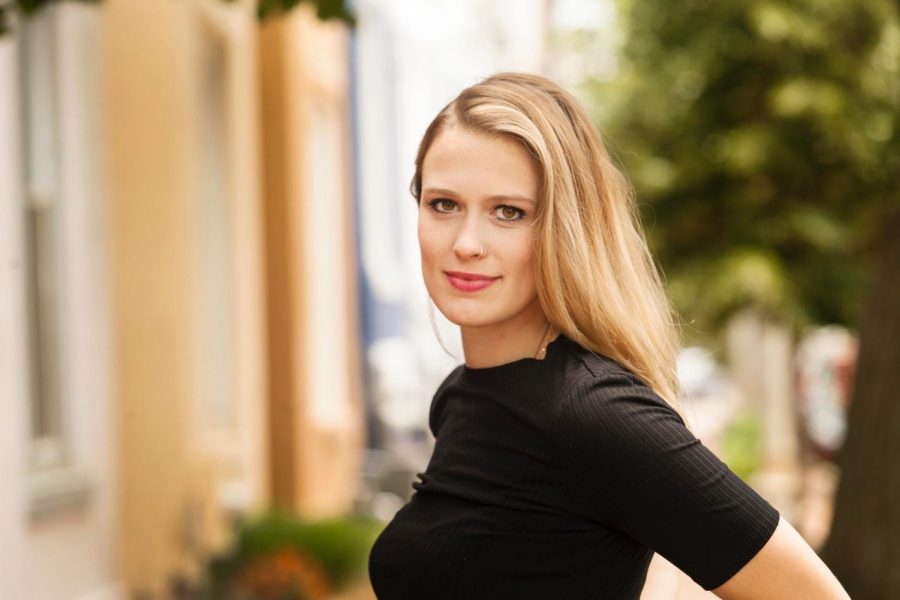NYU Grad Explores Love and Marriage in India
In her book “The Heart is a Shifting Sea,” NYU grad Elizabeth Flock explores the most human and intimate aspects of love and marriage in India.
April 2, 2018
In a cozy nook of McNally Jackson Independent Booksellers and Cafe in Williamsburg, an audience sat awaiting Elizabeth Flock to read from her debut book, “The Heart is a Shifting Sea: Love and Marriage in Mumbai.” The author and NYU Journalism graduate student quietly walked down the aisle and sat before the crowd with an air of reserved confidence.
Flock read excerpts from her book, which writer Katie Roiphe called “a nuanced and intimate evocation of Indian culture,” before speaking with Suketu Mehta, an associate professor of Journalism at NYU. Mehta, who was Flock’s professor when she was a master’s student in narrative nonfiction, introduced Flock as his “star student.”
Flock’s “The Heart is a Shifting Sea” does not present a grand narrative of India, but she’s aware of this fact. Instead, she aims to explore the most human and intimate aspects of love and marriage in India.
Having written for Forbes India, U.S. News and World Report, The New York Times and The Hindu among others, Flock’s time as a journalist has helped her in choosing and shadowing subjects intricately. For the book, she spent nearly 10 years in India and chose three couples from Mumbai to interview.
Flock witnessed the couples at their strongest and at their most vulnerable moments, and thus writes about her subjects with profound care and attention.
“Time was a big factor,” she said. It seems time taught her how to sympathize and how to observe the depth of her subjects’ private lives.
Flock chose to embark on this project for personal reasons. Her own doubts about the institution of marriage, infidelity and what makes a good or successful marriage was also a huge motivator.
Mehta — born in Kolkata and raised in Mumbai — noted how the city of Mumbai itself is a character in the lives of the couples in the book. The city determines space and boundaries, and permeates their domestic lives as well.
The professor is partially responsible for sparking Flock’s interest in India and Indian culture. During her time at NYU, Mehta encouraged Flock to watch Bollywood movies and Indian television shows as a way of understanding.
Despite this cultural and empathic understanding, Flock chooses her words carefully, and her experience presents the dichotomy of being an outsider.
“As a white person in India, you are granted access to spaces in India that even another Indian may not have access to,” she said. “There is an element of privilege to that.”
Perhaps this privilege and platform was what made her subjects reveal to her things they wouldn’t have opened up about to other people. And from that, Flock excavated stories that likely wouldn’t have surfaced otherwise.
“For most people, their first novels are what seem most necessary to them,” Mehta said. After the conversation, one leaves with the certainty that Flock’s book is not just necessary for her but for all of us.
Flock battles with subjectivity and objectivity in “The Heart is a Shifting Sea,” but she remains faithful to that which it represents: the humanity and love in all of us.
A version of this article appeared in the Monday, April 2 print edition. Email Devanshi Khetarpal at [email protected].
























































































































































